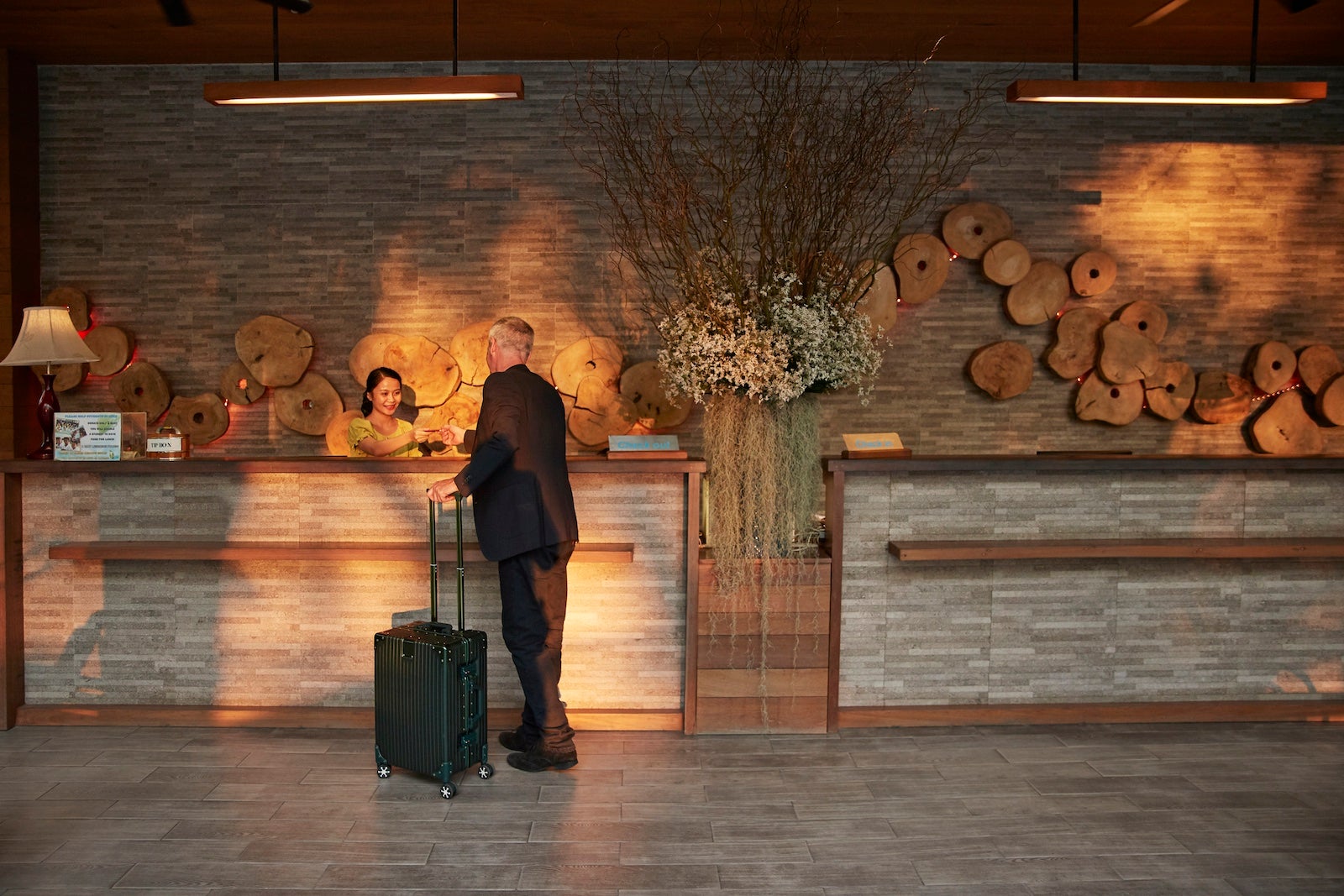Here’s 8 ways to find hotel rooms in sold-out destinations
It’s going to be a busy travel summer.
As TPG reported back in March, flight prices in 2024 are actually slightly lower than they were during the worst period of the COVID-19 pandemic, but that doesn’t necessarily indicate decreased demand. In fact, we’ve already seen record travel numbers: On the Friday of Memorial Day weekend, the Transportation Security Administration reported that it screened a record 2.9 million passengers. Airlines have also taken note by increasing capacity and adding more frequent flights to popular destinations, such as Spain and France.
We’ve seen various flight deals — both for domestic destinations and places abroad — for travel throughout the summer into the shoulder season. Hotel deals, however, remain much more elusive.
One reason may be that hotels cannot simply increase their capacity like airlines or quickly build more hotels in response to demand. For example, it’s relatively easy for airlines to add seats to a particular destination, as we’ve seen with flights to Paris for the 2024 Summer Olympics.
“Demand for travel to Europe has expanded this year, capturing more searches from US travelers than at this time last year,” Haley Berg, lead economist at booking portal Hopper, said.
But there is hope. Here are eight tips you can use to find a hotel room this summer in sold-out destinations.
Use a third-party booking site
We generally don’t recommend using third-party sites to book hotel rooms or flights (since it’s more difficult to coordinate with an airline or property if you need to make a change); however, online travel agencies such as Expedia or apps like HotelTonight could potentially yield last-minute reservations and savings.
“Travelers should remember that when you book through these types of third parties, you may not be eligible for hotel loyalty program benefits, and your stay booked through these parties won’t count toward earning stay credits or points,” Henry Harteveldt, founder of travel industry analytical firm Atmosphere Research, said.
Still, sometimes OTAs could be your best bet when capacity is tight or prices are especially high.

Daily Newsletter
Reward your inbox with the TPG Daily newsletter
Join over 700,000 readers for breaking news, in-depth guides and exclusive deals from TPG’s experts
Related: Why you don’t earn hotel points when booking through online travel agencies
“Many airlines partner with Booking, Expedia, and others for lodging content. Sometimes, these rates may either be discounted or include bonus airline miles,” Harteveldt said. “It may be worth exploring these to see if there are hotels that meet a traveler’s needs for location, quality, price and amenities.”
Before you book, be sure to read the fine print. Keep in mind that if you use an OTA to book a room for something as high-stakes as the Paris Olympics, you could be without a hotel room if something goes awry. When you use a third-party site, you must go to them for problems instead of directly to the airline or hotel; this can lead to issues since they essentially act as a middleman.
Call the hotel to confirm availability
If you prefer to book with the hotel directly, try calling the property if there seems to be no availability online — there could be open rooms that are simply not listed on the Internet.
“Search engines may not always be 100% accurate, and you might be able to negotiate a rate, depending on how much work you want to put into it,” Ellie Nan Storck, TPG’s managing editor of hotel content, said.
If you are already in the city where you want to book a hotel, stopping by the front desk is also an option.
Related: Hotels sold out for the Olympics? Here’s where to stay instead
Consider alternate accommodations
If you’ve had little success finding a hotel room at your usual brands, Harteveldt advises looking beyond the familiar hotel chains.
“Accor Group has a massive presence across Europe and NH Hotels, [is] based in Spain, [and] operates several brands that collectively have an extensive presence [of] properties ranging from budget to deluxe across Europe,” per Harteveldt, who spent a lot of time researching hotels for a recent two-week European trip. “StarHotels, based in Italy, has properties across Italy plus several other major European cities. Based in the U.K., Premier Inn has budget/economy/midscale hotels in numerous cities.”
Travelers open to non-hotel accommodations should consider a home rental service such as Airbnb, VRBO or Kindred, a members-only home exchange network.
“Vacation rentals have their own benefits, especially for families or larger groups,” Berg said. “They can also offer unique experiences in different locations.”
Just remember that some destinations have imposed regulations on short-term rentals, which may affect the minimum or maximum stay, Harteveldt noted. Although these services are not necessarily always cheaper, pricing will depend on the market, so it is worth researching to see if you can find properties in your desired destination. Remember that these companies charge a cleaning and service fee per rental.
If the thought of staying at a hostel conjures up images of your college years, know that there are upscale options, including private rooms. TPG recommends Generator Hostels, which offer boutique hostel accommodations across Europe and the U.S., including both shared and private rooms. Plus, you can sign up for its newsletter and get 10% off publicly posted rates.
Along the same lines, travelers should see if they can find apartment hotels — a concept that Harteveldt says is more prevalent in Europe than in the U.S.
Sometimes referred to as an “aparthotel” or a “serviced apartment,” these are apartment-style accommodations that offer hotel-like service, including a front desk and professional housekeeping. If you’re looking for a place to stay for the 2024 Olympics, consider services such as Paris Perfect.
Be flexible
Managing your travel expectations and being flexible with your desired dates and destinations is always helpful, especially during high-demand seasons.
“This summer, I’m focusing my Europe trip on Central Europe (Poland, Austria, Slovakia and Bavaria) to get away from the crowds in Paris, Spain, Italy and Greece,” TPG senior credit cards editor Matt Moffitt said.
If you are set on visiting a specific country, Ellie suggests being open-minded about which destinations you plan to visit.
“If you want to go to the Amalfi Coast but there aren’t hotels, consider other beautiful Italian beach destinations within one to two hours,” she said.
It’s not a best-case scenario, but if you are willing to move around within one destination, try booking a different hotel each night in the same city instead of one hotel for your entire trip.
Similarly, consider accommodations near airports, which are often well-connected to the rest of the city through public transportation.
“Hotels near an airport are often less expensive. See if there’s commuter service to a nearby suburb with better rates,” TPG senior hotels reporter Tanner Saunders said. “Sure, you might have to train for 30-plus minutes, but you could save so much money.”
Remember, just because you’ve flown into one city doesn’t mean you must stay there your whole trip, Berg said.
“If hotels are hard to come by or expensive in one area, [try] renting a car and exploring more of the country you are visiting,” she said. Berg also agreed that it’s a good idea to look for deals outside of city centers. “You might find better deals in the outskirts of the city or even in a town nearby.”
If you haven’t booked your flight yet and have flexible travel dates, consider shifting your trip to shoulder season in the fall. At this time, hotels and flights to certain destinations, including Europe, should be less expensive than at the height of summer.
“You can save off-peak summer prices just by traveling in September versus peak summer months, and there will be smaller crowds vying for the same hotels,” Berg said.
Search non-dynamic pricing hotels
When cash rates are prohibitively high, look for a hotel that uses non-dynamic award pricing, meaning rates do not fluctuate based on demand.
Wyndham and Choice have points hotels that still have non-dynamic award pricing. Hyatt also has an awards system where you can find deals, though it is increasingly moving toward peak and off-peak pricing. Hilton Honors and Marriott Bonvoy are likely to be the most expensive on points when cash prices are high.
Rack up points
This strategy will only work if you have at least three to four months before your trip, but that can be a strategic time to open a new credit card with a welcome bonus. Travel reward credit cards often reward new cardholders with welcome bonuses for spending a certain amount within three months of opening the account.
Additionally, depending on how much time you have, you can join a hotel loyalty program to accrue points for stays ahead of your big trip.
Look for discounts
From organizations like AARP that reward their members with travel discounts on hotel stays to the up to $200 prepaid Amex Fine Hotels + Resorts statement credit that comes with The Platinum Card® from American Express (two night minimum stay required), there are ways to help offset your hotel stay that you might already be entitled to.
If not, an example of a simple way anyone can save is by staying at hotels with free breakfast, such as Embassy Suites. Another way to save money on a hotel rate is by checking in Monday through Thursday instead of a Friday or Saturday; travelers who check in on those weekend days and stay through Sunday will pay a premium, according to Berg.
Book a refundable hotel
If you find a hotel with availability but it’s more than you want to pay, book a refundable room. Then, continue to track hotel prices in the area in case they decrease.
“I have noticed that some hotels drop their rates from five days to two weeks before the day I plan to arrive. When I see this, I book the room at the lower price and then cancel the initial reservation,” Harteveldt said. “However, some hotels have extended the cancellation deadline, sometimes to as much as seven days before arrival, undoubtedly to protect themselves against this behavior. “
Unfortunately, there’s no Google Flights equivalent for hotels that allows you to set an alert when the price of a tracked property drops. Still, you can try setting a reminder on your phone every few days to check the online rates.
Bottom line
Though this summer is expected to be a particularly busy one for U.S. airports (and rising hotel costs reflect this), these tips can help you find a hotel and save money.
Most people tend to book their flights first and accommodations later when planning a trip. However, it may pay to book a refundable fare that you can cancel in case you come across a better deal. Remember, U.S. airlines allow travelers to cancel their flight for free within 24 hours of booking; after that window, it’s dependent on the conditions of your fare type.
“If you haven’t booked flights yet, shopping for both airfare and hotel rates is equally important, given the high prices airlines and hotels are charging. Sometimes, shifting flights by a day or two may generate meaningful savings,” Harteveldt said. “Likewise, where you have flexibility within your itinerary, see whether you can reduce your hotel costs by adjusting your hotel arrival and departure dates. I just did this with my trip to Italy and cut my hotel costs by 20%.”
If you are booking during a time of limited availability and high demand, such as this summer, you might want to do a preliminary hotel search in your destination first to ensure that accommodations will be available within your budget.
Related reading:












